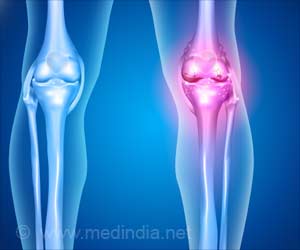A group of Muslim women here have broken stereotypes about their community to promote good health and hygiene in their neighbourhood.
A group of Muslim women here have broken stereotypes about their community to promote good health and hygiene in their neighbourhood.
Led by Shakeela Khan, a postgraduate in Urdu, nearly a dozen young women - most have never been to college - have been working in this commercial capital of Madhya Pradesh to eradicate tuberculosis, polio, diarrhoea and chikungunya and create awareness about the benefits of delivering babies in hospitals.'We have seen people suffering from several diseases but never taking medicine and all because of misconceptions. What we are doing is to dispel some myths and show them the right way to have good health,' said Shakeela, who is in her mid 40s, told a visiting IANS correspondent.
Currently they are working in 20 slums comprising over 3,400 shanties, and most of the target population is Muslim.
'There is a misconception that taking polio drops will make kids impotent and we have managed to dispel this notion. You need to create awareness and talk to people in their language,' Shakeela said.
Explaining the difficulties faced by them, Mumtaj Khan, 30, said it took them three to four months to change the mindset of people in their locality.
"Both men and women were not ready to listen to us. They were of the opinion that we are politicians and we were meeting them for votes," Mumtaz said.
Advertisement
Santosh Jaiswal is probably the only Hindu woman in this group of health workers. "Our work is not religion specific. The aim is to improve the condition of the people. During last year's chikungunya outbreak, we all went home to home to create awareness among slum dwellers," she said.
Advertisement
Added 30-year-old Mobin Khan: "We cleaned the drains along with the villagers and cleared the stagnant water from unused tyres, backyard pits and coolers.
"Some of our colleagues were infected by chikungunya as well but we did not relent. Someone needs to take the initiative and we are doing that," she said.
To make themselves efficient health workers, all these women are planning to go for a midwifery course.
"We are telling our community women to deliver babies in hospitals. Our work in the last three years has helped women go to hospitals and now at least eight out of every 10 women go for institutional delivery," Shakeela added.
Inspired by the work of these people, other young women and girls of slums have now formed community-based organisations (CBOs) and are working with them.
Sama Parveen, 20, who has only studied till Class 5, has been accompanying pregnant woman to hospitals for a couple of years.
"Though I am not very educated, I can understand the good intention of these women. I am helping fellow women to go to hospital, talk to doctors and even telling them how to keep their homes clean," said Parveen.
The Urban Health Resource Centre (UHRC), a voluntary organisation, which is supporting the health workers in terms of money and imparting skills, said women in this locality are an example for others in the country.
"In spite of opposition from their families, these women have come out to help others. These people have never lacked leadership quality and what we have done is to invoke it. Muslim women doing work in the field of health and hygiene is exemplary," said Siddharth Agarwal, director of UHRC.
Source-IANS
SRM





